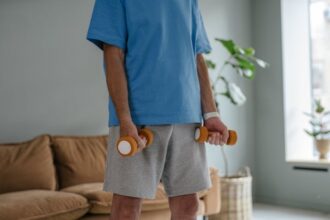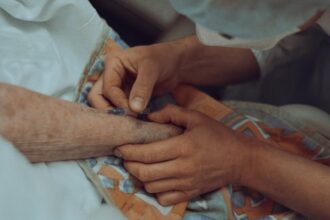“Stress and trauma during childhood—ranging from abuse and neglect to domestic violence, substance misuse, criminality within the family, or the loss of a parent—profoundly impact a significant portion of our society,” explains Prof. Christine Heim, the study’s lead researcher and the Director of the Institute of Medical Psychology at Charité. Prof. Heim notes that between 30% and 40% of individuals report experiencing severe stress or trauma in their early years. These early adversities can leave lasting molecular and neurobiological marks, altering the endocrine and immune systems and heightening the lifelong risk of various diseases.
In their research, Prof. Heim and her team explored whether these negative early-life experiences have a prolonged effect on brain ageing and contribute to neurodegenerative processes. The study, a collaboration with the Department of Neurology at Charité, involved 179 women aged between 30 and 60. The focus on women was strategic, as they are at a higher risk of developing neurodegenerative diseases. “Our initial step involved clinical interviews to gauge the extent of stressful or troubling experiences in the participants’ childhoods, specifically before puberty,” mentions Lara Fleck, a doctoral candidate at the Institute and the study’s primary author. The team also analysed participants’ blood samples using high-precision technologies to identify biomarkers indicative of neuroinflammatory processes and nerve cell damage.
Using magnetic resonance imaging, the researchers measured the participants’ brain sizes and the spaces within the brain filled with cerebrospinal fluid. They also assessed cognitive function through a globally recognised standardised test, choosing three specific tests for their precision in detecting early signs of dementia. “The participants had to complete a variety of computer-based tasks tailored to reveal early dementia indicators,” Fleck adds.
The analysis of the data was thorough, incorporating statistical models that factored in socioeconomic and psychiatric conditions, such as depression, which could influence the development of neurodegenerative diseases. This was done to ensure the accuracy of the findings concerning the impact of early-life stress.
The results were unequivocal across all facets of the study: women who had endured significant stress or trauma during childhood exhibited higher levels of biomarkers related to neuroinflammation and neurodegeneration, reduced brain volume, and increased cognitive difficulties. “Our findings clearly demonstrate a link between early-life stress and accelerated brain ageing in women, suggesting that such experiences heighten the risk of developing neurodegenerative conditions,” Prof. Heim concludes, adding that further research is necessary to understand the mechanisms involved so that interventions can be developed to disrupt these disease pathways at an early stage.
“The implications of our study are critical, particularly in light of the rising prevalence of neurodegenerative conditions like Alzheimer’s,” states Prof. Matthias Endres, Director of the Department of Neurology at Charité. “These findings reveal new connections and underscore the importance of our research.” Despite the strong associations found, it is crucial to note that not all individuals who experience childhood trauma will develop dementia. Many show remarkable resilience, managing to navigate severe crises without long-term damage. According to the team, identifying and enhancing these resilience factors is a central focus for future research.
This study’s emphasis on women is driven by the fact that a significantly more significant number of women than men develop dementia, prompting a need to understand if similar patterns hold for men. “So far, our results apply only to women, and they do not suggest that women with stressful childhood experiences are at a higher risk than men,” Prof. Heim clarifies, highlighting an area for further investigation to determine if similar links exist among men.
More information: Lara Fleck et al, Early-Life Adversity Predicts Markers of Aging-Related Neuroinflammation, Neurodegeneration, and Cognitive Impairment in Women, Annals of Neurology. DOI: 10.1002/ana.27161
Journal information: Annals of Neurology Provided by Charité – Universitätsmedizin Berlin








